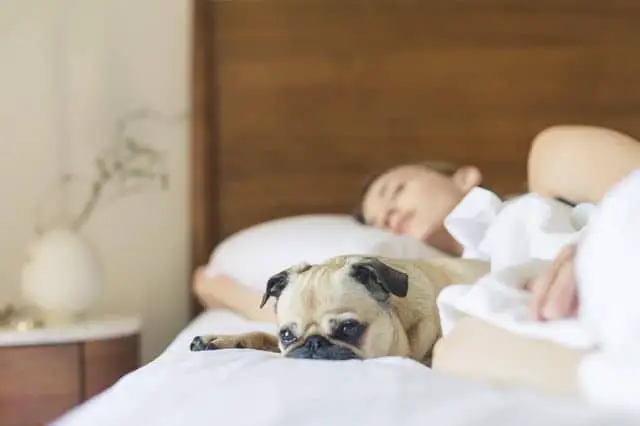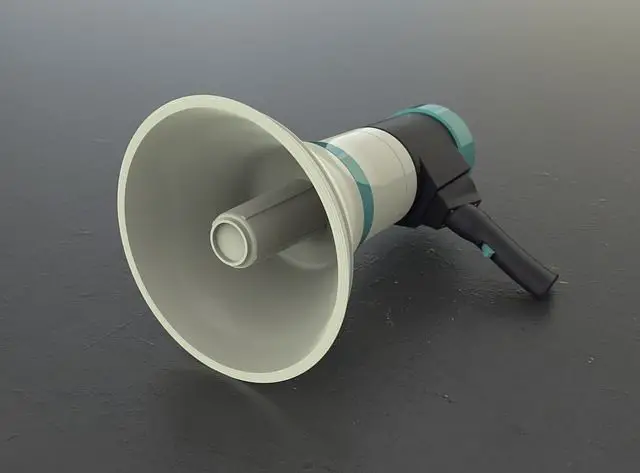Sleeping next to a loud snorer can be a terrible experience. You might feel anxious about how the lack of sleep will affect you the next day. Frustration and resentment towards the snorer are common sentiments too. The big question is how to fix the problem. Is it possible to get a good night’s sleep if you’re sleeping right next to a loud snorer?
There are several things that can be done. You can take matters into your own hands and wear earplugs or headphones to sleep. Sound machines also help block out the snoring. You can help the snorer by suggesting the use of special pillows or mouth pieces that can alleviate the snoring.
Sleeping next to a loud snorer isn’t an impossible task. It might take some time for you to figure out a solution that works for you. Read on to learn about more strategies you can try out at home, both for yourself and your sleeping companion.

Things You Can Do
It was mentioned before that there are some things that you can do directly to try to make better the sleeping environment you find yourself in. You want to essentially block out any noises that are keeping you from a peaceful night’s sleep. Try these products and see how they help.
White noise machine
A white noise machine might seem like it’s adding to the problem, but for many it has the opposite effect. Some find it actually soothing and lulls people to sleep. They no longer aren’t fixated on the erratic snoring rhythms that are coming from the person they are next to.
Earplugs
The easiest way to block out noise is to wear earplugs. This will help you tune out the loud snorer. It might not drown out the snoring entirely, but it should reduce it to a more manageable level.
Earplug manufacturers tell us that the normal decibel level of a snorer ranges from 60 to 80 or 90 decibels. Disposable earplugs will reduce the noise to some degree, but industrial earplugs will lower the noise level by a good amount to the tune of 28 decibels.
What this means is that if your partner snores at the highest decibel of 90 and the industrial earplugs reduce the decibels by 28, then you end up with 62 decibels. Sixty-two decibels are the rating of normal speech.

Headphones
Wearing headphones to bed with soft music playing can be helpful for partners of loud snorers to fall asleep while also working to drown out the snoring. If music is too distracting, you may find soft, soothing sounds of rainfall or a babbling brook to help.
Yes, you can get these sounds from most white noise machines, but paired with the headphones, your chances of snuffing out the snoring are higher. There was an article written recently on this site called: How to Sleep with Headphones that you might find helpful if you have more questions about how to use headphones while sleeping.
Sleeping headband
There are special headbands on the market that have earmuffs built in that can help to quiet the noise coming from your loud snoring partner. These earmuffs are nothing like the winter staple we are all used to, but a simple headband with thicker sections at the ears. Most of these earmuffs come with an added sleep benefit by also having a built-in eye mask to block out the light as well as the sound.
Earlier bedtime
You can try going to bed before the snorer. It is possible that using this method may help you get some much-needed sleep. The theory is that if you are asleep before your partner who snores, you may stay asleep once the snoring starts.
Some sleep specialists say that even if you don’t stay asleep once the snorer comes to bed, you will have gotten a little sleep before you wake up. Granted, half an hour or an hour is not much sleep, but it is better than none.
Hypnosis therapy
Hypnosis therapy may help get you some sleep. With hypnosis, the therapist will train your mind to believe that the snoring is a soothing sound that you need to fall asleep.
The belief is that if your partner is snoring, you know he or she is breathing which should soothe you, knowing that if he or she is snoring, they are alive. It is meant to be comforting.
Sleep arrangements
When all else fails, change your sleeping arrangements. By this I mean you and the snorer should try sleeping in separate rooms. Try it out and see if this solution works. Having distinct sleeping quarters should isolate noises in their respective rooms. So if you’re sleeping by yourself, you should have little to no noises disturbing you.
Honestly, this is probably the best way to address this problem. It isn’t all that uncommon for people to do. There’s nothing taboo about couples doing it. You have to ask yourself. What’s more important? Having a good and amicable relationship with your significant other or being resentful and sleep-deprived.
Things to Help the Snorer

The snorer can also do things to help improve the situation. The burden shouldn’t be placed on the person suffering from the loud snoring. Try things things in addition to the solutions prescribed above.
Side sleeping
Sleeping on one’s side is the best sleeping position for a snorer. A tried and true trick from the early 20th century that may help the snorer stay on his or her side is to sew a tennis ball to the back of their sleep clothes. Luckily, it is easier now because we can order a vest with a bolster pillow sewn into the back. This vest helps prevent the snorer from rolling onto their back.
Anti-snore pillow
Anti-snore pillows have shown in reports that they work for some snorers. If you start shopping for these anti-snore pillows, you will find that there are a lot of different ones. I can’t tell you which one is best for your partner because it depends, to be honest. Research all the models and try to match the pillow with the type of sleeper your partner is.
Wedge pillow
A wedge pillow is, by far, the most common pillow on the market. Wedge pillows can help snorers as well as those who suffer from acid reflux symptoms, glaucoma, or heart failure. All these conditions, including snoring, may get better by lifting the head above the heart.
Risers
You can place blocks of wood, or risers, under the legs of the headboard to lift the head at least 4 inches. There would be no need for a pillow, which can be uncomfortable, especially if your partner tends to toss and turn through the night. The risers would have the work already done, with little discomfort.
Adjustable bed
If your budget allows, the best solution for snoring and the other health conditions discussed above is an adjustable bed. These beds are pricey, but the benefits you garner from the use of one far outweigh the cost. You spend one-third of your life asleep. It might be worth it for your comfort and peace of mind.
Mouthguard
A mouthguard may be a good investment for your snoring partner. Mouthguards come in a variety of styles and range from over the counter versions to professionally constructed ones that sleep specialists specially order to fit your mouth.
These guards work to open the air passages in the throat while you sleep. It looks like the mouthguards that professional athletes wear while playing. This device might be worth your while to try out before calling the doctor.
You should know right away if the device is going to work. Chances are if it doesn’t work on the first night, it probably won’t work at all unless the snorer is misusing it.
Chin strap
There are chin straps you can buy over the counter that work to keep your mouth closed while you sleep. This method is best for mouth snorers but will be of little use to a nose snorer.
Unfortunately, there is not much research into these devices, and what little there is gives conflicting results. Some researchers insist that they do help, while others believe that they are not worthwhile.
Interestingly, these chin strap devices can be harmful to those with problems with their nose that cause breathing difficulties. For example, a cold can block your nasal passages, as can a deviated septum, or nasal polyps.
Some users have reported that the straps help with grinding their teeth while they sleep. So, there may be a benefit to wearing a chin strap device, but you should also heed the warnings. The only way to know if they will work for you is to try them out.
Nasal strip
If your partner snores through his or her nose, they may find relief in the form of nasal strips that look like thin strips of a stick-on bandage. These strips are meant to widen your nasal passages that will in turn help with the loud snoring.
A lot of snorers report satisfactory results with the nasal strips. Unfortunately, if your partner is a mouth snorer, the strips will not help.
The Importance of Health & Well-Being

If the loud snorer in your family is overweight, the best thing he or she can do is to lose some weight. Studies show that losing just 10% of your body weight can help with many ailments, snoring included.
Make exercise and meal planning a family affair. Select a time when everyone can sit down together and plan out the meals for the week. After dinner, take a brisk walk outside if the weather permits. If walking is hard for you, swimming is an excellent low-impact workout that can help a lot. Consider signing up for a membership to a gym that offers a year-round pool.
Exercise
There are special exercises your partner can do that are designed to help develop the throat muscles directly. General all-over exercise is good for many ailments, including snoring. But, these six exercises that I found on the HelpGuide.org website will help you to build the muscles you need in the neck and throat area, which can help your partner gain more control over his or her snoring.
Dehydration
Dehydration does not help the snorer. Try to make sure that your partner drinks plenty of water throughout the day. The recommendation is at least 64 ounces a day for women and 80 ounces for men.
The best way to hydrate is with water. That isn’t to say that you can’t have something else to drink throughout the day, concentrate on getting your water in. As a word of warning, however, beverages that contain caffeine, such as tea, coffee, or soda, have the reverse effect. They tend to dehydrate you, so be careful how much caffeine you drink in a day.
Smoking
One culprit of snoring is smoking. Smoking causes mucus supplies to increase to compensate for the drying effects of the smoke. With this increase of mucus, you share the problems of those with severe allergies or those with colds. Any affliction that causes your nose to be stuffy, including smoking, will make it difficult to breathe while lying down and thus, increase your risk of snoring.
Is it possible for you to have a discussion with your partner to try to encourage him or her to stop smoking? Stopping smoking is not just for your benefit to stop the snoring, but for theirs as well.
This article is owned by Sleeping Report and was first published on December 13, 2019
By stopping smoking, your partner can be healthier and breathe easier, thus relieving the snoring, which includes vaping as well. People are dying from vaping, so it isn’t just helping with snoring. Stopping the smoking, and vaping can keep people alive.
Alcohol
Alcohol has a considerable influence when it comes to snoring. You know that the mouth and throat muscles relax while you sleep. But excess alcohol consumption close to bedtime can make your muscles even more relaxed than usual, while at the same time reducing your body’s defense mechanisms against the obstruction of your airways.
Try drinking less during the day, especially close to bedtime. After dinner, try to limit yourself to one drink and nothing two to three hours before you are ready to lie down and go to bed.
Medication
Sleeping pills and other sedatives work the same way in the body as alcohol does, and often more extreme. Your body becomes overly relaxed, which can cause loud snoring. It is essential that you only take these aids if necessary.
Not only do sleeping pills and sedatives help contribute to snoring, but there are also a host of other problems that can come along with these sleep aids. Often the side effects of the sleep aids are worse for you than insomnia. Both have some of the same issues that contribute to next day difficulties.
Sleeping pills are common, but studies tell us that if we can avoid these drugs, we should. They can cause addiction and affect our bodies in terrible ways.
Narcotics
Narcotics are in the same realm as alcohol and sleeping pills. Prescription drugs prescribed for pain are the most common, but they work in the same way as the sedating alcohol and drugs already discussed. They relax your body too much and contribute to loud snoring.
Only take narcotic drugs as prescribed to try to tamper down the snoring. Don’t take them for prolonged periods to avoid the risks of addiction.
Why Do People Snore So Loud?

Why does your partner snore so loud? Snoring occurs when the muscles in your neck and mouth relax too much causing them to vibrate. While snoring can happen to anyone, skinny or fat, and even children at times, chances are that the loud snoring is because of excess weight or obesity.
Loud snoring can also happen because of deformities of the mouth and throat. It may be due to an enlarged soft palate or a low hanging uvula. Both can obstruct the air passages, especially when a person is lying on their back.
It isn’t just the soft palate or uvula that can be the problem. It may also be the sinuses or tongue that are abnormal. A large tongue can fall back into the throat and block the air that you breathe causing loud snoring. It is also possible that the sinuses are crooked from a deviated septum. Again, obstructing the air you breathe in through the nose, not the throat.
In addition to anatomical abnormalities, your sleep position also affects how loudly you snore. You can see this article for more information about body position and snoring: Sleeping Right vs. Left Sides. Back sleepers tend to snore louder than side sleepers.
Sleep deprivation can also lead to loud snoring. In much the same way as alcohol consumption works to overly relax your muscles, sleep deprivation relaxes your muscles too much because you are so exhausted that your body’s defenses lower so you can get some much-needed sleep.
Some causes of chronic loud snoring are medical conditions that will need doctor intervention. Chronic allergies that result in constant congestion may need the help of an allergist to get this condition under control and help relieve the snoring.
OSA or Obstructive Sleep Apnea is another medical condition that is more severe and will need the advice of a sleep specialist to help determine whether you suffer from this condition or not. Some of the symptoms of OSA are:
This article is owned by Sleeping Report and was first published on December 13, 2019
- Pauses in breathing while sleeping
- Being overly sleepy throughout the day
- Trouble concentrating on tasks
- Headaches or migraines upon waking (with or without vomiting)
- Waking up with a sore throat
- Tossing and turning through the night
- Waking up gasping or choking through the night
- High blood pressure
- Chest pain while you sleep
- Snoring so loud you disturb your partner
- Shortened attention span (especially in children)
- Inferior performance at school or work
- Issues with poor behavior (especially in children)
If you leave OSA untreated, you are at a significantly higher risk of stroke than those who seek treatment from a sleep professional. Once you seek help, chances are your doctor will ask you to take part in a sleep study overnight. The test doesn’t hurt, though it is a bit annoying trying to move with the wires connected all over your body.
A Few Snoring Facts

- Men tend to snore more often than women.
- People who are overweight have a higher chance of snoring than those who are thinner.
- If a member of your family suffers from Obstructive Sleep Apnea, you have an increased chance of suffering too.
- Snoring is the most common sleep disorder, though it is far from ordinary.
- Snoring can end relationships.
- Up to 40% of men and up to 20% of women snore every night.
- There are 100,000 reports of car accidents each year due to drowsy driving. Along with this, 1,550 fatalities have occurred in these accidents.
- 49% of those unemployed are sleep deprived, while 40% of those who can’t work are sleep deprived.
- College-educated individuals get the most sleep, with 72% of sleep-filled nights.
- Estimates show that 100,000 medical mistakes that happen each year are due to sleep deprivation.
Summary
Sleep deprivation is a massive problem in our society, with snoring being the most significant contributor to the problem. As the partner of the loud snorer, you have the same risks as they do and possibly even more.
You must get enough sleep at night so you can perform at your peak the next day. If it means sleeping using one of these methods discussed to get that sleep or urging your partner to seek help from a professional, you need to do it.
If your partner is reluctant to seek help or resists trying any of these snore prevention techniques, it could be time for you to seek advice for yourself from a medical professional. Your doctor may have more suggestions.
If the loud snoring is causing a rift in your partnership, you might benefit from seeking the help of a certified couple’s therapist. He or she may be able to conclude how to fix your relationship.
SleepingReport.com copyright article was updated on ..
Have you tried any of these tips? Let us know how they worked for you in the comments.

